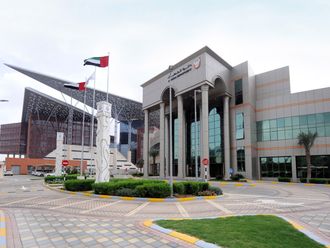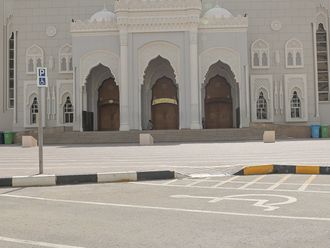Diabetes in the Gulf is a timebomb ticking down to a massive explosion, unless policy makers take a grip of the disease.
This was the stark warning issued here yesterday by a doctor who said as much as 50 per cent of the local Arab population in the Gulf states is at risk of suffering diabetes-related diseases.
In the UAE, Kuwait and Bahrain, up to one third of the population is obese, and at current levels half of them will get diabetes type two, according to Dr Oussama Khatib, regional advisor on non-communicable diseases for the World Health Organisation in Egypt.
Speaking during the Arab Health Congress, he said diabetes is the fourth largest cause of death in the region, and action from policy makers is needed now to stop deaths from this manageable disease.
He added that there are few health professionals qualified to deal with the disease in the region, and there is a great and urgent need for not only 'diabetologists', but also diabetic educators, nutritionists and even chiropodists, one who treats feet and their ailments.
He presented a paper at Arab Health 2004, the Middle East's leading exhibition and conference on hospital services and medical equipment being held at Dubai International Exhibition Centre (DIEC) until January 21.
"This region has more than 3.5 million diabetes type two sufferers and children as young as ten are being diagnosed with the disease due to obesity, coupled with physical inactivity, an unhealthy diet and hypertension," Dr Khatib pointed out.
"This problem is now at pandemic proportions, and is a great burden in terms of cost. This is no longer a problem for the individual sufferer, it is a problem for society, for government, it's a huge social challenge," he added.
He called on policy makers to introduce immediate public health programmes to increase awareness of the disease, "which is both preventable and manageable".
But in extreme cases, diabetes type two can result in blindness, kidney failure, amputations and death.
"Effective preventative solutions exist, but these are not being rationally or widely used in the region. While special treatment centres exist, most of them are beyond the reach of ordinary people, and there are still people in the wider region dying of the disease for want of insulin.
"If not addressed now, this will become the most expensive health problem ever faced by regional health care services," he added.
Primary measures to prevent disease
* The development of community-based healthy lifestyle programmes.
* Promotion of healthy weight levels
* Programmes to stop smoking
* Early identification of possible diabetes type two by screening to reduce the cost burden.
Diabetes 'a ticking timebomb' in Gulf
Diabetes in the Gulf is a timebomb ticking down to a massive explosion, unless policy makers take a grip of the disease.










